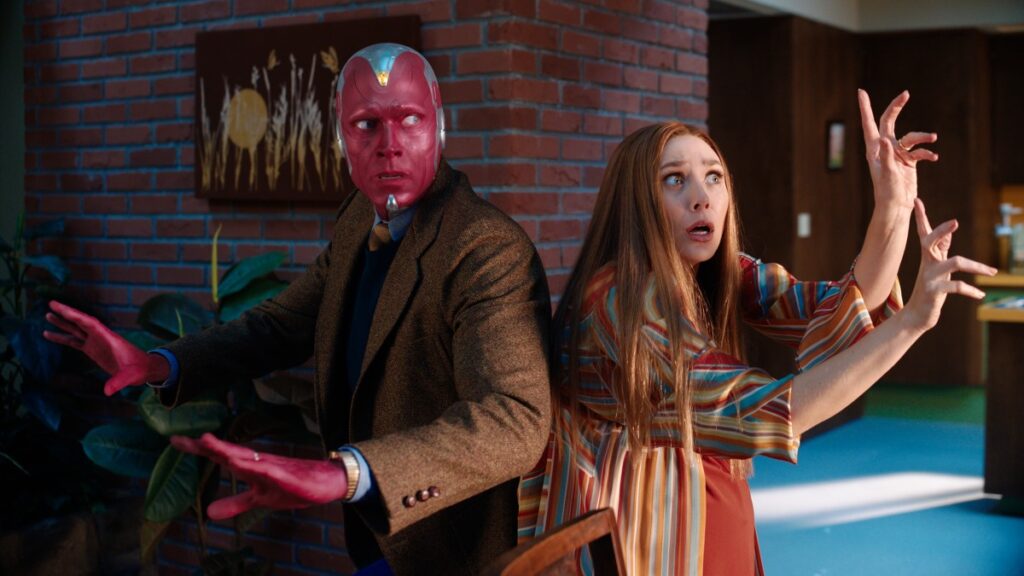
Chris Giles thought he was hearing things. The veteran film and television Production Mixer could hardly believe that WandaVision snagged a whopping 23 Emmy Award nominations. Among those nominations was one for Outstanding Sound Mixing for a Limited or Anthology or Movie, which went to Giles, Re-Recording Mixer Danielle Dupre, ADR Mixer Doc Kane, and Scoring Mixer Casey Stone, for the show’s powerful finale.
Giles has steadily moved up the Hollywood ladder, working on bigger and higher-profile projects, and counts among his credits Central Intelligence, Moonlight, The Fate of the Furious, Stranger Things, Annabelle Comes Home, and The Conjuring: The Devil Made Me Do It.
Currently at work on the Disney+ series Ms. Marvel, Giles spoke to Below the Line last week about his work on WandaVision, advances in sound recording over the course of his decade on the job, and Ms. Marvel.
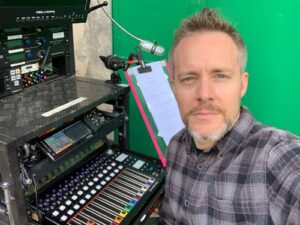
Below the Line: Congrats on the Emmy nomination. What does it mean to you to be nominated?
Chris Giles: It was a bit unreal, because – and this will sound weird — I never aspired to obtain an award. That was never really a drive, even in my side pursuits outside of music and film and television. I do a lot of very competitive things; One of those things is like grassroots motorsports. I take cars out onto little tracks and race around. People always ask, “Are you interested in knowing your time trials?” I’m competitive with myself. My dream isn’t to stand up on that podium and say, “Look at me. Look, I did it!” I’ve changed a bit of my philosophies in life. Now that I’m realizing that filmmaking is truly a team sport, I’m okay with saying, “Me and team, in the collaborative effort, we helped create XYZ thing.”
BTL: You’re sharing this nomination with Danielle, Doc and Casey, and that joint nomination is one of many the show has received…
Giles: It’s quite amazing. The great thing about so many people being named is a lot of people won’t be forgotten or brushed aside, or their contribution won’t go unrecognized. But in each name, there’s a supporting team, or they happen to be a member of that larger team. There’s a whole swath of people involved [with the people who earned nominations].
BTL: For anyone out there who may not know what exactly a sound mixer does, please take us through your responsibilities…
Giles: Essentially, you’re responsible for the capturing and preservation of the performance as it relates to audio in the production phase. And you have responsibilities in the pre-production phase, such as planning and logistics and trying to figure out wardrobe and cast counts and how many moving pieces they have here and there, and what equipment you need and what people you need to help you. There’s a huge portion there that’s always glossed over. A lot of times, modern productions have adopted the philosophy that sound doesn’t even need to be in pre-production. I think that’s kind of a bad thing because, as I walk through the responsibilities, simply, if you don’t capture what’s there whenever your actors are performing just so perfectly for lens or for angle and action and everything else, if you then have to replace it — and this is no hit against people who specialize in recreating those dialogue or sound efforts later — if you don’t at least capture them to get a reference that is true to who they are as an actor, you have to ask yourself, “If their performance isn’t important, why are you hiring a sound team to begin with? Why don’t you just replace everything later?”
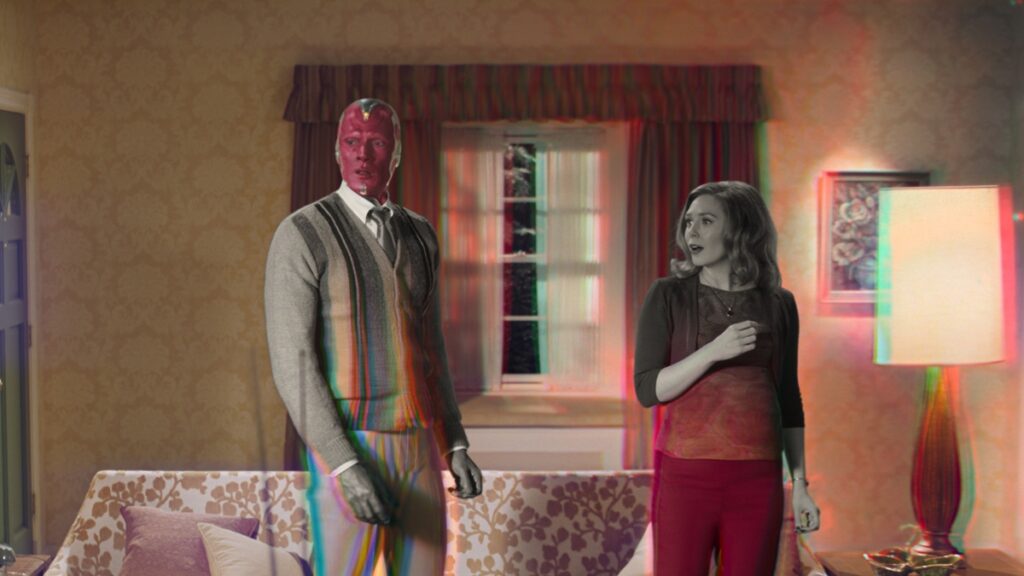
But my responsibility is making sure the actor can go out there, not have to think about anything in my universe, do what they do best, and that the director or directors can continue to direct. The producers can go ahead and say, “We’re meeting our time schedules,” because we don’t have to delay for additional times where we just couldn’t get any form of clean audio or usable audio. They found, a lot of times, though, we’ve moved more and more synthetic with a lot of things, such as our visual effects, processing, which adds amazing layers to content, one of the things that’s missed out on is if there is a full replacement of dialogue on set, it feels inauthentic. There’s something psychological going on. Bits and pieces, our minds are okay with it. But if it’s huge swaths of performance, there’s something just not there. There’s something our minds pick up on that’s psychological. So, I’m there to preserve the performance. That’s essentially it. What I feel my specialty, and my team’s specialty is doing it… not invisibly, but as part of a collaborative, knowing when to show up and be visible and when not to, because there’s a time and place. I think anybody that actually is in the business and has gotten to see a variety of sound people on set, you’ll notice there’s different personas. There’s the stereotypical, curmudgeon-y type, where they’re complaining about every airplane, every this, that and the other thing. Well, they actually may be correct. It’s how they handle it. That may be incorrect. I go on to every job and I apologize. I go on to every job as if I was writing the check. I literally, every day, sit down and think, “If I’m writing the check, did I bring the right people here? Did I bring the right equipment here? Are we doing the best efforts with everything here?” Because it’s not the whole time-is-money thing as much as there’s a cost involved, and if you’re adding additional pressures that you maybe need to learn how to back off on and when to speak up, you may not be spending financial capital, but you’re spending psychological, emotional or creative capital.
BTL: Who brought you on for WandaVision?
Giles: I was very, very fortunate. I was on the current Conjuring film. It’s a relationship business. A lot of people that were on the most-recent Avengers film, and who went as far back as Iron Man and things of that nature, they started asking me, “Hey, we like working with you. What are you doing next? I know X, Y, Z projects coming up. Why don’t you apply?” I said, “Okay.” I was on Conjuring, which is a household name, especially if you’re into the horror genre. So that was already a way-up-here moment in my head and heart. Thinking Marvel? This sounds bad, especially if you were intimately involved with Conjuring, but Marvel is like so far out here. I grew up wanting to be Han Solo. Sorry, I didn’t want to be Luke Skywalker. I wanted to be Han Solo. Then, seeing Deckard in Blade Runner… That universe, that science-fiction type universe captured my imagination to want to create things.
That’s what Marvel represents right now. It certainly does in my mind. While I was a fan of comics and graphic novels, I didn’t have massive, standout things. I was just generally intrigued with it, to the point where I’ve been continually trying to publish my own. So, I ended up speaking to them over at Marvel. Here’s their collection of people that they were talking to, and I was somewhere down here. It was a very fortunate experience. I spoke to [Production Manager] Jason Tamez. He was the one who hired me. Jason basically gave me a shot, because I didn’t have the huge, huge tentpole films, except for Conjuring 3. I did have Moonlight, but that’s a whole different type of film when you’re talking these massive projects. So, he gave me an opportunity. I recall him mentioning that he investigated me, which was his due diligence. He said, “Nobody had anything negative to say about you.” I was like, “Well, that’s not necessarily hard. They may just not know who I am, or forgot me.” He said, “No, because then they went on to trying to sell you.” I was like, “Wow.” That spoke to me. That’s a cool achievement that you don’t really think about in the day-to-day. So, I was basically sold by a bunch of people. Some of them were even competitors that wanted to do these projects. And because they’re good people, they helped promote me.
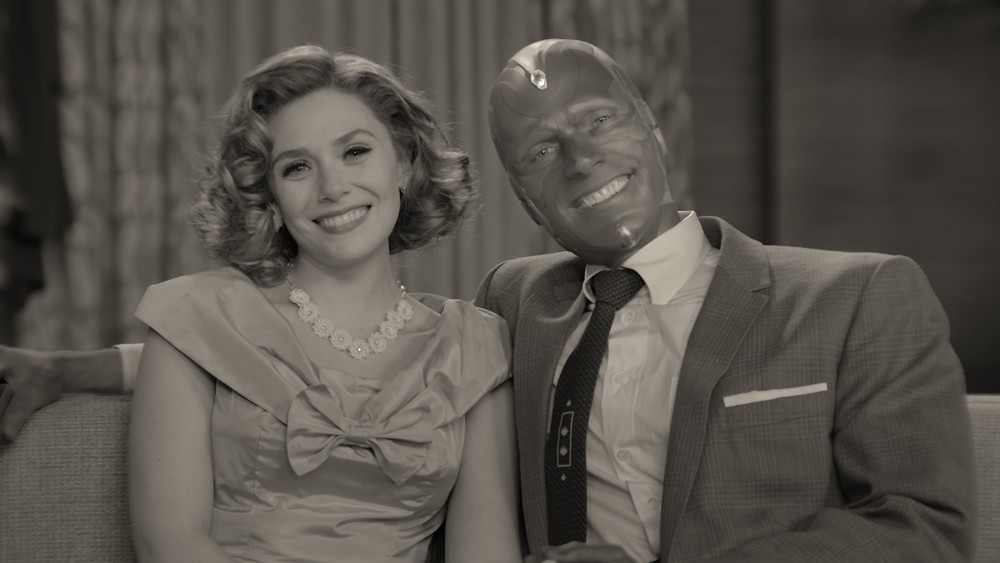
BTL: What were some of the specific challenges for you and your team on WandaVision?
Giles: I encourage everybody to watch Assembled, which is the behind-the-scenes [show], and they’re taking all the Marvel streaming things and fleshing stuff out. Almost the first half of the one I re-watched the other night went into the most technically complex thing that I have encountered. It doesn’t have a ton of influence on the episode that was nominated, because it was the finale that was nominated, but there was a section of it, the building of the story that was filmed in front of a live studio audience. Now, that sounds not that abnormal, [if] you think of things like Malcolm in the Middle, or all the way back to The Honeymooners era. There are still current sitcoms done in front of a live studio audience. But there are facilities, and techniques in staffing, that are unique to that for camera, lighting and for sound, that are not present on a modern film set. Apparently, it was a conversation in pre-pre-production, well before I was even talked to, that they may try to do a section of this live. That was shut down by the time I came into the picture. Then, quite literally one and a half to two weeks ahead of time I learned that, “Hey, by the way, we are definitely doing this in front of a live studio audience.” I said, “Where was that in pre-production?” That wasn’t the fault of anyone. That was just as they fleshed it out, and they started seeing some of the stuff they were putting together, they wanted a certain energy. And that was the best way to capture that energy, because what is it about? It’s about story and performance, right? To give that story and performance of an authentic era, they needed to go ahead and present our actors and technicians with some of those challenges to try to authentically capture it. I think that was the whole thinking behind it.
So, we had to plan and process how to capture all this stuff live in front of a live studio audience that included all of the Marvel and Disney higher-ups, every one of their friends and investors and, you know, just good acquaintances and such. How do we do what we do while staying out of the way, because there’s very limited cuts? Now, we did go back to, “Oh, we needed inserts on the hands.” And we needed a closer interaction between these two or three people here. We did capture some of that stuff, and it is pieced into the final product. But a huge, massive part of the pressure of the project was during that performance, staying completely out of the way of the people and making sure the audience actually got to enjoy and participate. It was an exhilarating experience. That was literally the first time I got to briefly meet, because he was insanely busy, Kevin Feige. When you’re sitting there as a sound mixer, you’re mixing all the tracks, trying to reproduce that so post-production has something to work with. Whenever they’re watching the dailies, shot by shot, they have an audio mix to listen to and reference. Now, it has to be of a standard that a live audience with P.A. speakers… They’re listening to everything you’re doing. So, every mistake that you make is amplified, and then some. As a perfectionist, and I think most creatives are perfectionist in their own right, that was anxiety, but it was also an amazing rush, I guess you’d say. But that was probably our largest challenge. The other challenge was the weather was not a friend of ours. We had some sets that we re-created. It was supposed to be very militaristic. The sets were essentially based on military shipping containers, and the skin of the roofs, a lot of them weren’t true roofs. They were just effectively hardened tents. So, that amplified everything you didn’t want. I’m certain that Doc Kane, our ADR mixer, earned his Emmy nomination on those scenes. But we did everything we could. That was certainly a massive, massive challenge, going inside and outside, raining, pouring. It wasn’t all fun that year.
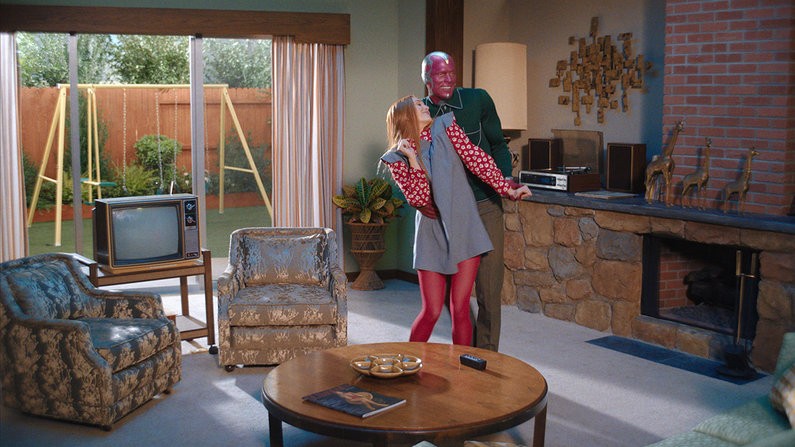
BTL: You’ve been in the business professionally for about 10 years. How would you say recording technology has evolved since you started?
Giles: It’s evolved quite a bit. Effectively, the sound universe is outrageously reliant on wireless. We always had wireless, like bodypacks. The person comes over, puts a lavalier on you, tucks the pack somewhere on the body. Since I’ve been in the industry, there’s always been that. When I was doing front of house or music performance, there was always that available for people. But we relied more heavily on hardwired elements, meaning a physical cable running out to a microphone somewhere out there on the stage, be it for a music performance or for an actor. That’s now moved to the side. Now, we end up becoming wireless managers as well. There’s a lot of math involved, and a lot of unsung hours and stresses spent just mapping that out, and then evolving that on the day. You have this blueprint of what you’re going to go in with and then you show up on the day, you don’t realize that now there’s another production only so many yards away and they did the same thing, and now you’re overlapping.
So, in that sense, the technology has changed dramatically. The job has become vastly more technical. Where before it was more mechanical-technical… That’s not the right word, but there was definitely a precision required prior, but the types of precision and engineering thinking you have to have now are evolving more and more technically, things that a lot of people go to school for outside of this industry, when it relates to IT and management and electronics and engineering. So that’s evolved. The capabilities of our machinery have improved dramatically and the ergonomics have improved a bit. With certain products, it’s certainly evolved. Other products, not so much. But the ability for me to be more portable has increased dramatically. That speaks more towards my passion of being a collaborator, because then I don’t present the challenge to where the director gets this great idea, and “We have to change this shot right now. It now needs to be a moving shot, and we have to do it in a car,” or whatever the case is. The director doesn’t have to sit back and say, “Oh, crap, we can’t do that, because Chris isn’t portable,” or, “Chris can only do a small amount of channels in this certain package, in this certain footprint.” Now, I’m able to be in that situation where, if the director imagines it, or the writer imagines it, there is a practical application that I have available.
BTL: You’re currently at work on Ms. Marvel. How is that going?
Giles: WandVision was, for lack of better phraseology, a female-centric project. It’s about Wanda. I don’t want to add a spoiler if someone’s not seen it, but it’s about her grieving process and her place in the universe, or the MCU universe. It’s about going through that. There’s an amazing tagline that’s delivered, and I don’t want to say it, but it’s delivered by Vision. It just rips the heart out of you. To me, it was so impactful. Circling back to Ms. Marvel, some of those elements that I appreciated getting the opportunity to do in WandaVision, like pushing the idea of a female lead out there, where it normalizes cheering for the lady, not just the big, hulking guy. It normalized that, and now Ms. Marvel, if you followed the comic series, I think you’ll be impressed. I think you’ll learn to appreciate things that are not commonly on Western media screens.
WandaVision is currently streaming on Disney+. All pictures courtesy Marvel, except where noted.





